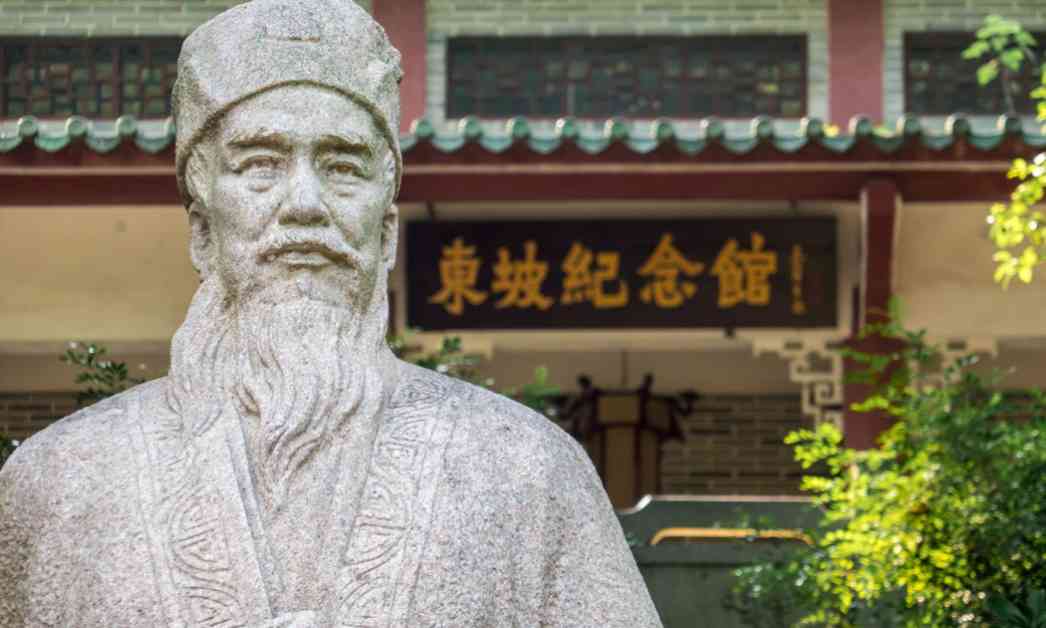Su Dongpo and Wang Anshi were two influential figures in ancient Chinese history, known for their clash of words and lives. Su Dongpo, a renowned poet and scholar, faced off against Wang Anshi, a reformer who initiated significant changes in the Song Dynasty. The two men had different views on politics, academia, and ethics, leading to heated debates and conflicts.
When Wang Anshi came into power, he implemented various reforms, including the establishment of the “Three Institutes System” to centralize decision-making and reform efforts. Su Dongpo, known for his outspoken nature, criticized these reforms, pointing out the potential negative impact on the people and officials. He argued that the new system would disrupt the traditional balance of power in the government.
Su Dongpo and his brother Su Zhe actively opposed Wang Anshi’s reforms, highlighting the flaws and potential dangers they saw in the new policies. The brothers believed that the reforms were driven by personal gain and would ultimately harm the people. Despite their efforts to challenge Wang Anshi’s policies, the reforms continued to be implemented, leading to further tensions between the two factions.
In addition to their political disagreements, Su Dongpo and Wang Anshi also had differing views on academia and ethics. Wang Anshi’s emphasis on practicality and governance clashed with Su Dongpo’s more traditional views on morality and education. This difference in philosophies further fueled their animosity towards each other.
The conflict between Su Dongpo and Wang Anshi extended beyond politics and academia, spilling over into personal attacks and accusations. Wang Anshi’s supporters, including officials like Xie Jingwen, launched investigations and accusations against Su Dongpo, including allegations of illegal trading and corruption. Despite the lack of evidence, these accusations tarnished Su Dongpo’s reputation and strained his relationship with the ruling authorities.
Ultimately, the clash between Su Dongpo and Wang Anshi reflected larger tensions within the Song Dynasty, highlighting the complexities of power struggles and ideological differences in ancient Chinese society. Their feud serves as a reminder of the challenges faced by intellectuals and politicians in navigating the treacherous waters of politics and governance.












